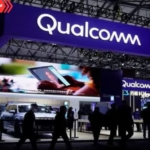In a landmark development for India’s pharmaceutical sector, Glenmark Pharmaceuticals has entered into a strategic licensing agreement with US-based AbbVie for its novel small-molecule drug candidate aimed at treating chronic inflammatory diseases. Analysts describe this as a turning point for Indian drug innovation, signalling global recognition of India’s evolving research and development (R&D) capabilities beyond generics and biosimilars.
Deal Highlights and Strategic Significance
Under the deal, Glenmark will receive an upfront payment from AbbVie, along with milestone payments linked to clinical development, regulatory approvals, and commercial sales, potentially exceeding USD 1 billion if the candidate achieves global market success. AbbVie will gain exclusive worldwide rights to develop, manufacture, and commercialise the compound outside India, while Glenmark retains limited marketing rights in the Indian market.
What Is the Drug Candidate?
The licensed molecule is a novel oral small-molecule inhibitor targeting specific inflammatory pathways implicated in diseases such as:
- Rheumatoid Arthritis
- Ulcerative Colitis
- Psoriasis
- Ankylosing Spondylitis
This class of drugs offers the potential for better safety, oral bioavailability, and patient compliance compared to current injectable biologics and corticosteroids.
Why Is This Deal a Turning Point for Indian Pharma Innovation?
Historically, Indian pharmaceutical companies have dominated the global generics market due to cost advantages and reverse-engineering expertise. However, R&D-led innovation has remained limited due to high costs, regulatory complexities, and market access barriers.
This Glenmark-AbbVie deal demonstrates:
- Validation of Indian R&D Capabilities: A major multinational licensing a first-in-class Indian-origin molecule indicates global confidence in local research pipelines.
- Shift Towards Innovation-led Business Models: Signals an industry pivot from volume-driven generics to value-driven new chemical entities (NCEs) and specialty drugs.
- Boost to Indian Drug Discovery Ecosystem: Encourages domestic companies to invest in discovery programmes, backed by potential global licensing opportunities.
Financial Structure and Benefits
| Component | Details |
|---|---|
| Upfront Payment | Undisclosed but estimated between USD 50-100 million |
| Development Milestones | Payments at successful completion of each clinical trial phase |
| Regulatory Milestones | Payments upon approvals from US FDA, EMA, and other authorities |
| Commercial Sales Milestones | Royalties on net sales, potentially making the deal exceed USD 1 billion over the product lifecycle |
| Market Rights | AbbVie holds exclusive global rights except India, where Glenmark retains co-marketing privileges |
Impact on Glenmark’s Innovation Strategy
Glenmark has been among the few Indian companies consistently investing in new drug discovery alongside its generics and dermatology business. This deal:
- Strengthens its global credibility as a research-driven company
- Provides non-dilutive funding to reinvest in its discovery pipeline, accelerating other novel programmes
- De-risks commercialisation by leveraging AbbVie’s regulatory and marketing expertise in major markets
AbbVie’s Strategic Rationale
AbbVie, a global leader in immunology with blockbuster brands like Humira and Skyrizi, views this deal as:
- Portfolio Expansion: Diversifies its pipeline with a potential oral therapy complementing its biologics.
- First-mover Advantage: Early licensing of a promising molecule reduces development costs compared to acquiring late-stage assets.
- Emerging Market Access: Collaboration with Glenmark may also facilitate AbbVie’s broader market penetration strategies in India.
How Does This Reflect Broader Industry Trends?
| Trend | Explanation |
|---|---|
| Big Pharma partnering with emerging market innovators | Rising costs of in-house discovery are prompting multinationals to license promising molecules from Asia |
| Indian firms pivoting to innovation | Companies like Glenmark, Sun Pharma, Zydus, and Biocon investing in NCEs and novel biologics to drive long-term growth |
| Global recognition of Indian R&D talent | Success in chemistry, formulations, and now molecular discovery establishes India as a global pharmaceutical innovation hub |
Challenges Ahead for Indian Drug Innovation
Despite this breakthrough, Indian innovators face persistent challenges:
- High R&D Costs: Drug discovery requires billions in investment with no guaranteed returns.
- Regulatory Complexities: Clinical trials and approval processes remain long, expensive, and uncertain.
- Investor Appetite: Domestic investors still prefer generics-driven stable cash flows over high-risk discovery ventures.
India’s Evolving Drug Discovery Pipeline
| Company | Lead Innovative Asset | Indication | Status |
|---|---|---|---|
| Glenmark | Small molecule inhibitor (AbbVie deal) | Chronic inflammation | Pre-clinical to Phase 1 |
| Zydus Lifesciences | Desidustat | CKD-related anaemia | Approved in India; US Phase 2 |
| Sun Pharma | Ilumya (tildrakizumab) | Psoriasis | Marketed in US, EU, India |
| Biocon | Insulin Tregopil | Oral insulin | Phase 3 in India |
What This Means for Patients
If the drug succeeds in clinical trials and gains approval:
- Patients globally could benefit from an oral treatment alternative to existing injectables.
- Access in India may be faster and cheaper, given Glenmark’s retained marketing rights.
Industry Expert Commentary
Atanu Mukherjee, CEO of Dastur Energy, commented on the deal’s broader economic impact:
“The Glenmark-AbbVie agreement is emblematic of India’s potential to emerge as an innovation powerhouse, not just the world’s pharmacy for generics.”
Healthcare analysts add that such deals will:
- Inspire other Indian companies to accelerate discovery pipelines.
- Attract venture capital and strategic investors seeking exposure to Asian biotech innovation.
Government Policy and Industry Future
The Indian government’s push through schemes like the Production Linked Incentive (PLI) for APIs and bulk drugs has strengthened manufacturing self-reliance. However, to sustain innovation momentum:
- R&D tax incentives need enhancement
- Regulatory frameworks must simplify early-phase clinical trials
- Public-private partnerships should support translational research and academia-industry collaborations
Conclusion
The Glenmark-AbbVie deal marks a transformational moment for Indian pharma, signalling that India is no longer limited to reverse-engineering generic drugs but is ready to produce globally competitive, first-in-class innovative therapies. As this molecule progresses through clinical development under AbbVie’s stewardship, the outcome will influence investor sentiment, policy focus, and strategic direction for Indian pharmaceutical innovation in the coming decade.
Disclaimer: This news article is based on publicly available corporate statements, analyst reports, and industry assessments. It does not constitute medical advice, investment recommendations, or official policy views and is intended solely for informational and journalistic purposes.











